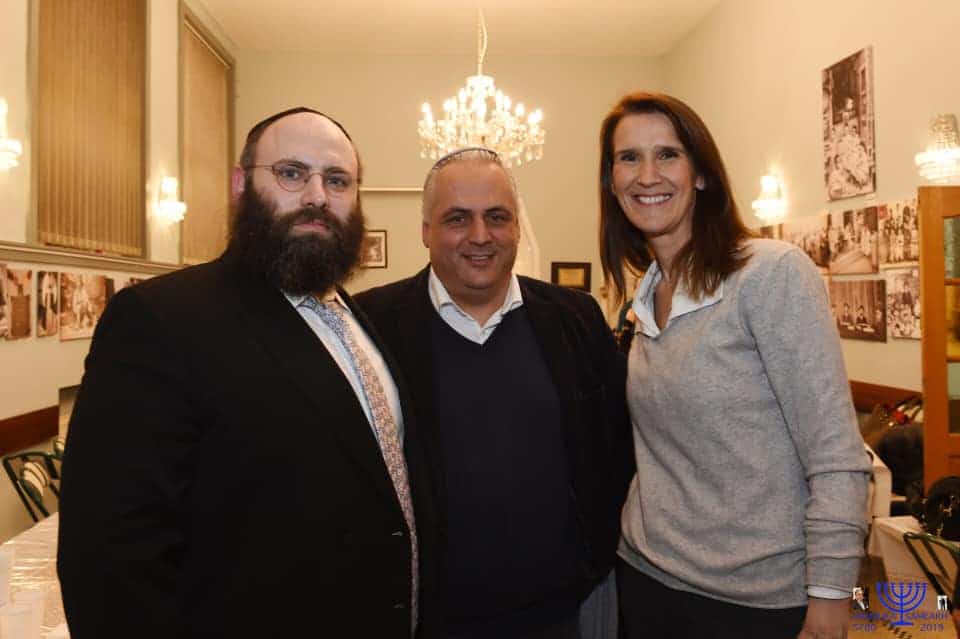Our Chairman Rabbi Menachem Margolin had the opportunity to meet Belgian Prime Minister Sophie Wilmès yesterday evening at the Chaarei Tzion Synagogue in Brussels, where leaders gathered to mark the 8th and concluding night of the Chanukah holiday. The Prime Minister and Rabbi Margolin agreed to stay in touch regarding ongoing challenges and opportunities affecting European Jewry.

Rabbi Margolin is pictured here along with Mr Alain Wahba of the MR for the Brussels Region and, of course, Prime Minister Wilmes.
(November 10, 2022 / JNS) The European Jewish Association (EJA) on Wednesday visited Auschwitz-Birkenau to mark the 84th anniversary of Kristallnacht, or “Night of Broken Glass,” a Nazi pogrom that took place on Nov. 9-10, 1938.
Conference attendees discussed measures to combat present-day anti-Semitism on the continent.
“My sons were on the bus in the center of Brussels last week. One woman looked at them with hatred, shouted ‘dirty Jews’ and moved to another seat. Everybody has the duty of visiting Auschwitz,” Rabbi Menachem Margolin, president of EJA, told the audience.
Gabriel Senderowicz, president of the Jewish Community of Oporto, Portugal, whose community has been in the news for having endured persecution by “state agents,” told the Portuguese Jewish News that “this event is fundamental for debating measures to curb anti-Semitism in Europe. And as important as debating is acting.”
On Nov. 9, the Oporto Jewish and Holocaust Museums, in partnership with the EJA, marked the anniversary of Kristallnacht, also the International Day against Anti-Semitism, with an exhibit about the “Night of Broken Glass.”
The museum was full of young people, “who have the obligation to know this chapter of history,” Senderowicz said.
Museum director Michael Rothwell, whose family was victimized in Kristallnacht, (every window in his grandfather’s shoe shop was broken), presented the exhibit to the children.
The museum also presented a guided tour of the Modern Anti-Semitism Room, showing the growth of the phenomenon in Portugal between 2015 and 2022.
The Oporto Jewish community reportedly came under attack by opponents of the “Spanish Law,” which granted citizenship to descendents of Jews who were expelled from the Iberian Peninsula in the 15th century.
With geographic, political and social divides growing wider, high-quality reporting and informed analysis are more important than ever to keep people connected.
Our ability to cover the most important issues in Israel and throughout the Jewish world—without the standard media bias—depends on the support of committed readers.
If you appreciate the value of our news service and recognize how JNS stands out among the competition, please click on the link and make a one-time or monthly contribution.















